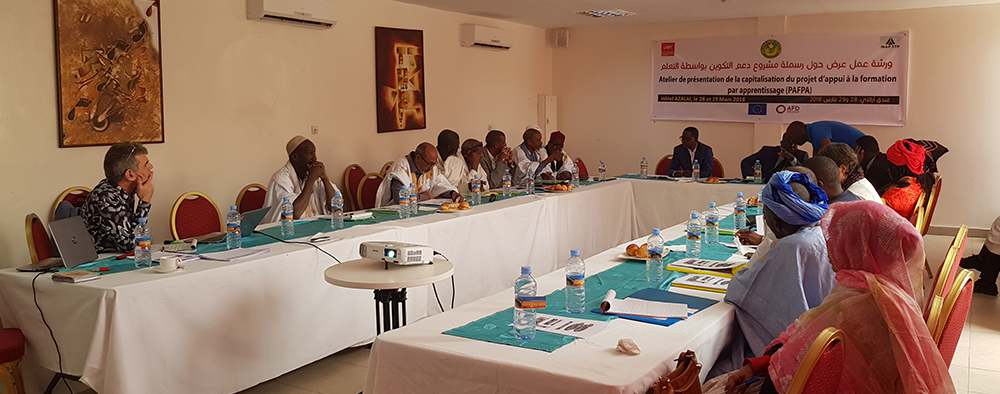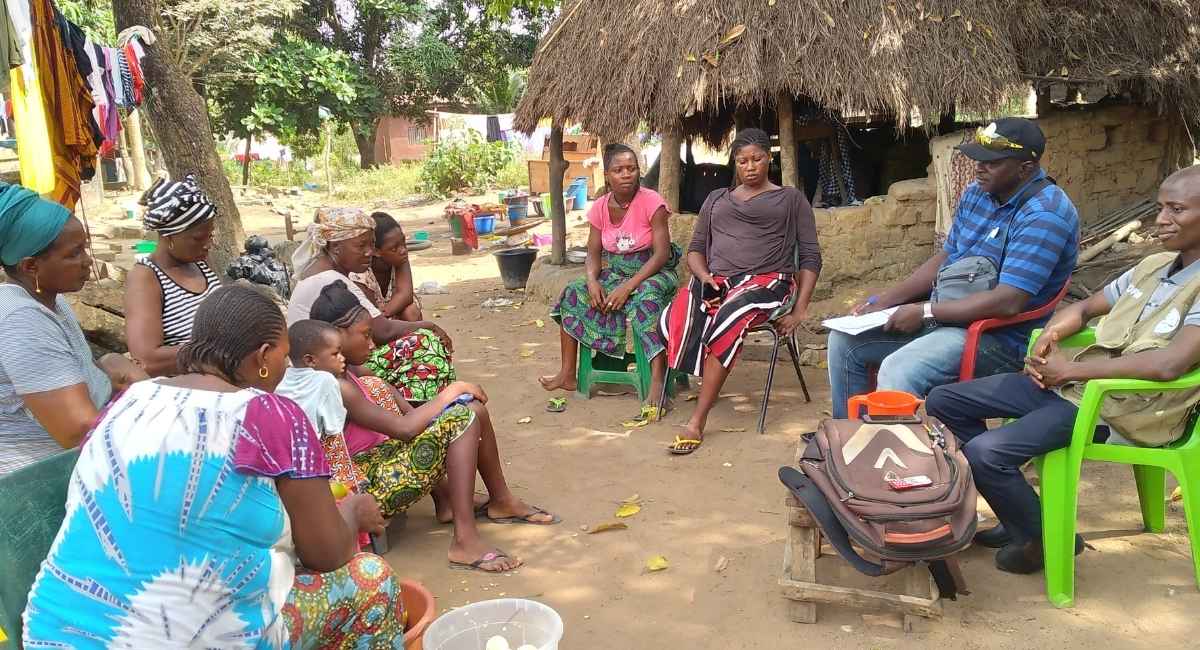On 28 and 29 March in Nouakchott, GRET and the National institute for the promotion of technical and vocational training (INAP-FTP) organised a workshop to present capitalisation of the Programme to support the development of training through apprenticeship (Pafpa) in Mauritania. With approximately thirty organisations in attendance, the workshop aimed to share the results of capitalisation on the experiences of this programme and to formulate recommendations with all stakeholders.
The Pafpa project was rolled out from 2011 to 2015 in Benin and Mauritania. The project aimed to develop an accessible work-linked training offer for young people, especially young people from disadvantaged areas. This offer was intended to be sustainable, responsive to micro and small businesses’ skills requirements, and recognised as part of joint action between public institutions, companies and training centres. The programme was coordinated by GRET, implemented by the Office for support to artisans (BAA) in Benin and the National institute for the promotion of technical and vocational training (INAP-FTP) in Mauritania. It was funded by the European Union and Agence française de développement in Mauritania.
In terms of the intervention strategy in Mauritania, as part of the collaboration between GRET and the Department of technical and vocational training (DFTP), the programme consisted of testing an initial training initiative through apprenticeships certified by the State. The training, which is validated by the certificate of skills (CC), was specifically aimed at young people who had left school and apprenticeships in micro and small businesses in the informal urban sector. It was rolled out in Nouakchott and in the urban and peri-urban areas of Boghé, Rosso and Atar. It supported work-linked training of 900 young people in 15 different professions as part of a partnership between six training centres, four professional organisations and artisans. At the end of the programme, the targets were reached: 900 young people, including 45 % of young women, had access to the training, and 75 % of these obtained a skills certificate; professional organisations were strengthened, although their involvement could be improved; a network of businesses bringing together more than 225 very small and medium-sized companies was organised.
Fifteen concrete actions to be conducted
This presentation workshop made it possible to bring together representatives from training centres and public authorities, some of the young people trained, professional organisations and representatives of the European Union and AFD. After discussing the results of the programme, participants recommended the necessity to strengthen work-linked training, to promote apprenticeships with a strategic view of development of micro and small businesses and rapidly growing professions, to diversify work-linked training procedures, to continue and consolidate education of young apprentices and develop process-based approaches in intervention strategies.
The workshop enabled these recommendations to be formulated in the form of fifteen concrete actions to be conducted as part of a potential follow-up to Pafpa in the following areas:
- design of training: update professions reference frameworks and training programmes; adapt the training offer to suit the economic specificities of territories; professionalise training of trainers, make the switch from the skills certificate to the professional aptitude certificate operational; strengthen functional literacy;
- organisation of the sector: strengthen the capacities of public stakeholders; support the organisation and strengthening of professional organisations, training centres and associations; adapt procedures for recognition of master-artisans’ skills; clarify and simplify mechanisms for sectoral consultation;
- support to very small and small and medium businesses: enable non-financial support structures for very small and small and medium businesses to emerge, examine other types of financial products for very small and small and medium businesses;
advocacy actions: include social clauses in public procurement; improve the efficiency of the autonomous fund for the promotion of technical and vocational training and implement an immediate payment system; broaden the training tax base (> 0.6 %) without increasing financial pressure on very small and small and medium businesses.
This article was produced with financial support from the European Union. Its content falls under the sole responsibility of GRET and does not necessarily reflect the opinions of the European Union.






